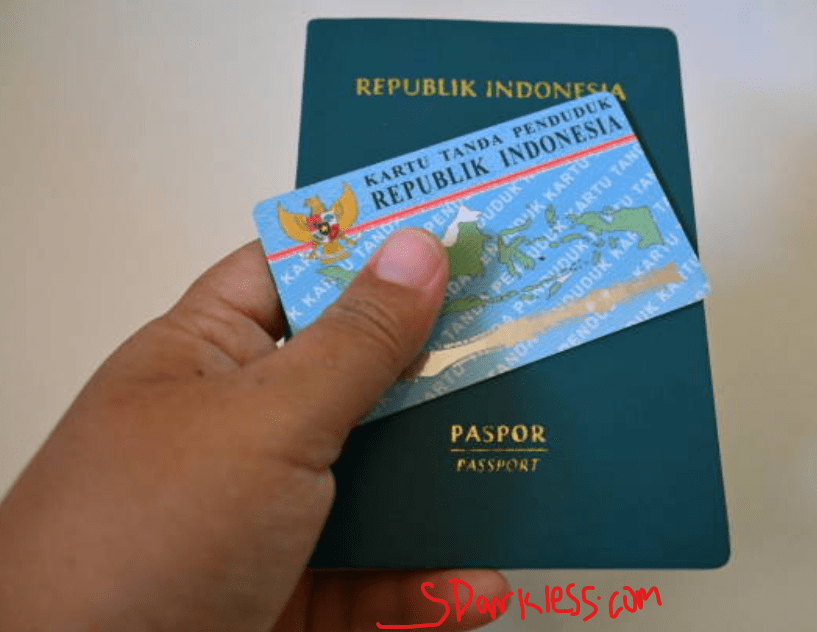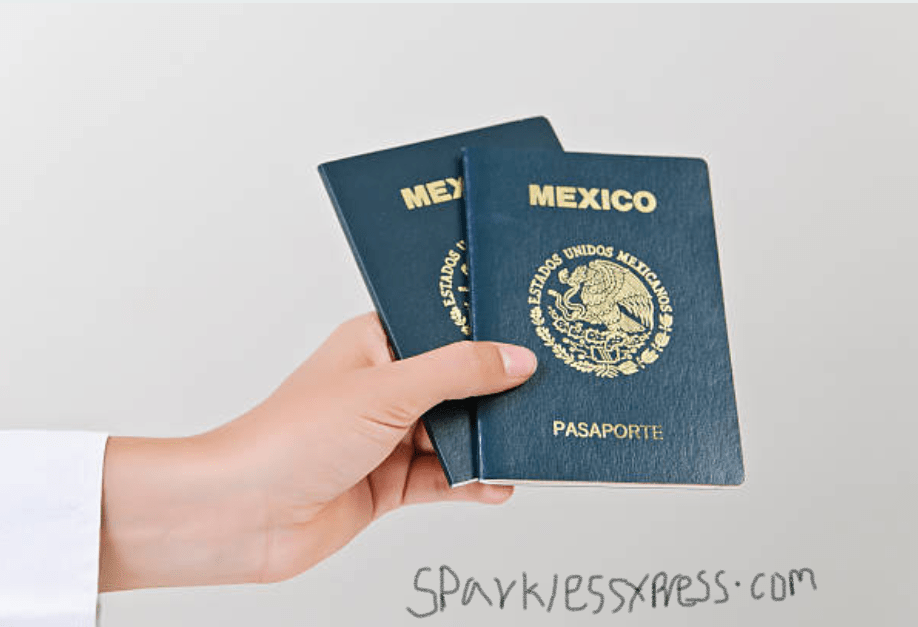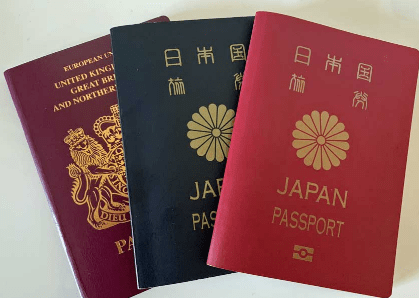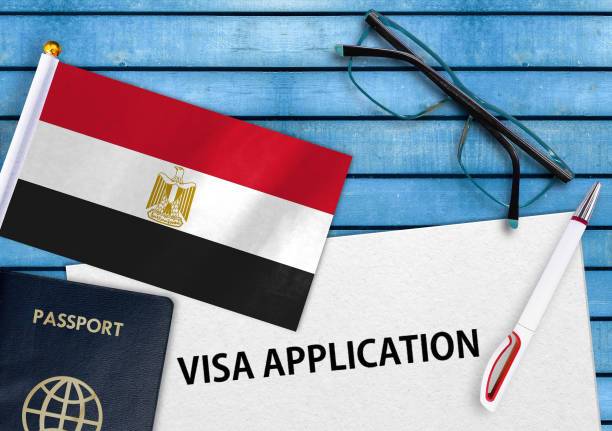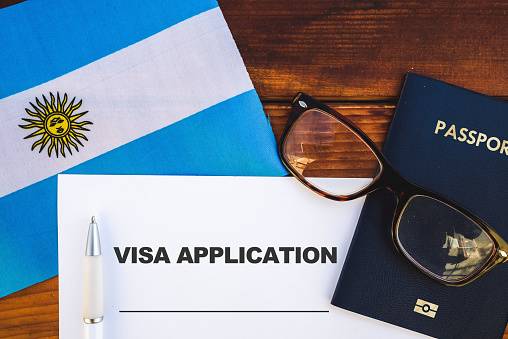Have you heard about the nation Israel as much as I have? I am quite sure you do. The nation boasts a robust economy, religiously significant landmarks, and tense ties to many of its Arab neighbors. The Western Wall, the Dome of the Rock, and the Al Aqsa Mosque are just a few of the most revered sites in the nation. If you are planning to visit Israel for any purpose, then sit tight as this page has everything you need to know.
An Israeli Visa is authorization to enter Israel and remain here for a specific permitted period. It also underlines the activities that you can perform while you are in Israel with a visa.
Types of Israel Visa
You have several visa alternatives to apply for depending on your reason for needing a visa to Israel. Israeli visas come in the following varieties:
- Immigration Visa. This is a visa for persons of Jewish roots living abroad, who wish to move and live in Israel.
- A/1 Temporary Resident visa. It is granted to those eligible for immigration (aliya) that have completed the examination process with the Aliya representative of the Jewish Agency, and whose application has been examined and approved by the diplomatic/consular representative at an Israeli mission.
- A/2 Student visa. Every person who wants to study in Israel in elementary and high schools, academic institutions, yeshivot, and youth institutions of the Jewish Agency can apply for this visa.
- A/3 Clergy Visa. You can apply for this visa if you are a clergyman, and you are applying for the fulfillment of your clerical duties among your religious community in Israel, according to the invitation of a recognized religious institution in Israel.
- A/4 visa for spouses and children. It is granted to the spouses and minor children of recipients of A/2 or A/3 visas.
- B/1 Work visa. You can apply for this visa if you want to move to Israel for a limited period of work.
- Working Holiday Visa. Only youngsters from a few specific countries can apply for this visa, to come and work in Israel.
- B/2 Visitor’s visa. Tourists, visitors, businesspeople, and students in a Hebrew Ulpan can apply for this visa.
- Official Diplomat/Government Visa. It is granted to persons who hold an official government passport and/or will be entering Israel on an official government mission.
- Israel – US Investor Visa. This visa is only for US citizens and permits them to reside and work in Israel temporarily to manage and develop a business venture.
Israel Visa Application Process
There are several steps involved in applying for a visa to Israel, and you must follow them exactly as directed. To avoid the chance that your visa application will be denied, you must ensure that you meet the requirements at every stage.
When Do You Need to Apply for a Visa to Israel?
| European Union member countries | Albania | Andorra |
| Argentina | Australia* | Bahamas |
| Barbados | Belarus | Belize |
| Botswana | Brazil | Canada |
| Central African Republic | Chile | Colombia |
| Costa Rica | Dominica* | Dominican Republic |
| Ecuador | El Salvador | Eswatini |
| Fiji | Georgia | Grenada |
| Guatemala | Haiti | Honduras |
| Hong Kong | Iceland | Jamaica |
| Japan | Lesotho | Liechtenstein |
| Macao | Malawi | Mauritius |
| Mexico | Federated States of Micronesia | Moldova (biometric passport holders only) |
| Monaco | Mongolia | Montenegro |
| Nauru* | New Zealand | North Macedonia |
| Norway | Palau | Panama |
| Papua New Guinea | Paraguay | Peru |
| Philippines | Russia (official passport holders require a visa and confirmation from the Israeli government) | Saint Kitts and Nevis* |
| Saint Lucia | Saint Vincent and the Grenadines | San Marino |
| Serbia | Singapore | Solomon Islands |
| South Africa* | South Korea | Suriname |
| Switzerland | Taiwan* | Tonga |
| Trinidad and Tobago | Ukraine | United States* |
Official passport holders, such as members of the American government, are not excluded from the requirement for a visa.
However, if you intend to visit Israel for any other reason than what the B/2 Visitor’s Visa allows, you must obtain the necessary visa.
When to Apply for an Israel Visa
The appropriate time to apply for your Israel visa is 1-2 months before your travel date.
Where to Apply for an Israel Visa
You must submit your application to the Israeli embassy or consulate in the nation where you now reside to obtain an Israeli visa. Israel has contracted with external visa processing facilities in several nations to handle visa entrance.
You should submit your application to the Israeli visa center in your nation of residency if one accepts applications there.
Complete the Israel visa application form
Before you proceed with the other steps, you should complete the application form for a visa to Israel. You can complete the form in either English or Hebrew. You can find an application form here.
The form can be completed electronically and printed, or it can be filled out using a pen of any color other than black. Your country, name, surname, parents’ complete names, occupation, and anticipated travel to Israel will all be subject to questioning.
Don’t forget to attach a photo to the application in the designated area; the photo must adhere to the ICAO requirements.
Gather the necessary documents
As part of your application for an entry visa to Israel, you will need to gather a few documents.
No of the reason for the travel, all visa applicants must submit the same documents to obtain a visa to Israel. These files include:
- Visa application form. The form differs depending on the visa you are applying for. Make sure you download and complete the right one.
- Two passport-size photographs. They must have a white background and be in size 5.5 cm X 5.5 cm.
- Your valid passport. Your passport must be valid for at least six months beyond the intended duration of stay in the Israeli territory and with at least one blank page to affix the visa.
- Older passports. You must submit all passports that you hold, including current/old/canceled/expired/special passports.
- Flight Booking. You do not need to purchase the tickets as if your application is rejected, you will lose your money. You just need a saved seat on a flight to Israel as proof of the date you intend to travel here.
- Birth Certificate.
- Payment of the applicable fee for the visa type you are applying for.
Along with this, you will also need to submit supporting documentation that relates to your travel itinerary and the type of visa you are seeking for. Make sure you submit all of the necessary paperwork by the standards established by the relevant Israeli authorities.
Attend the visa interview
Attending the visa interview is one of the most crucial steps in the visa application process for Israel. You must also submit the documentation you have gathered on the same day.
The visa interview is a meeting with a consular official who will question you about your intended trip to Israel, your accommodations, and your travel funding. The interviewer also inquires about your background, including whether you are married, and where you studied or worked, among other things.
Pay the visa fees
For the embassy to complete your request for an Israeli visa, you must pay a particular sum of money. Except for the Permanent Residence Visa, which is €167, Israel visa prices range from €21 to €41.
Every applicant for a visa must pay a specified sum of money as the visa fee to apply for a visa to Israel.
The authorities request the Israeli visa fee from applicants to defray the costs associated with processing visa requests. If the applicant withdraws their application or if their visa request is denied by the embassy, the visa fees are not refundable.
Depending on the type of visa, the prices for an Israel visa are as follows:
| Type of service | Euro | Dollar |
| B/3 Visa | 21.00 | 24.00 |
| Group Visa | 21.00 | 24.00 |
| Group Visa – per person | 6.00 | 7.00 |
| A/3-Clergy Visa | 41.00 | 47.00 |
| A/4-Temporary Visa | 41.00 | 47.00 |
| A/5 Temporary Residence Visa | 41.00 | 47.00 |
| B/2-Visitor Visa | 21.00 | 24.00 |
| Separate Form – B/2 Visa | 21.00 | 24.00 |
| Return Visa | 21.00 | 24.00 |
| B/4-Volunteer Visa | 21.00 | 24.00 |
| B/1-Work Visa | 41.00 | 47.00 |
| Permanent Residence Visa | 167.00 | 191.00 |
| Permanent Residence Visa – per person | 20.00 | 23.00 |
| A/2-Student Visa | 41.00 | 47.00 |
| B/5 Permitted to work – Foreign Investor Rules | 180.00 | 205.00 |
| B/51 Permitted to work – Foreign Investor Rules-Employee | 180.00 | 205.00 |
| B/52 Permitted to work unrestrictedly | 180.00 | 205.00 |
| B/53 Foreign Investor Rules – Child | 180.00 | 205.00 |
Israel Visa Processing Time
Your application for a visitor entry visa to Israel will be processed by Israeli authorities in at least five days. However, the time it takes to process a work visa can range from 12 to 14 weeks.
Israel Electronic Gate Pass
When you enter Israel, a card known as the “Electronic Gate Pass” is given to you at the border crossing. The card includes information regarding your itinerary, arrival date, and a copy of your passport’s information page.
The passports were previously stamped using a technology that has been replaced by a card. Keep this card with you at all times in case an official inspector or police officer asks for identification and verification of your legal status in Israel.
Required Confirmation
Before obtaining a tourist visa, citizens of many different nations, the majority of them from the Arab world, must obtain confirmation from the Israeli government.
The following nations’ national and official passport holders require confirmation to obtain an Israeli tourist visa:
- Afghanistan
- Bahrain
- Egypt
- Indonesia
- Iran
- Iraq
- Jordan
- Kuwait
- Lebanon
- Libya
- Malaysia
- Mauritania
- Morocco
- North Korea
- Oman
- Pakistan
- Qatar
- Russia (only for official passports)
- Saudi Arabia
- Somalia
- Sudan
- Syria
- Tunisia
- United Arab Emirates
Entry Requirements for Israeli Visa-Exempt Travelers
A few documents must still be presented at the Israel port of entry by foreign nationals who can currently enter Israel without the need for a visa. These include:
- A passport is valid for at least six months on entry with two blank visa pages.
- Proof of sufficient funds, i.e. bank statements, or cash.
- Proof of onward/return airline tickets.
- Documents showing proof of the purpose of the trip.
- A visa for the next destination, if required.
Can I visit Arab countries with an Israeli stamp on my passport?
If you have an Israel stamp on your passport, some Arab nations forbid you from entering, while others do not make a big deal out of it. These nations are listed below:
- Arab/Muslim countries that accept visitors with Israeli-stamped passports: United Arab Emirates, Egypt, Jordan, Oman, and Morocco.
- Arab/Muslim countries that DO NOT accept visitors with Israeli-stamped passports: Syria, Lebanon, Libya, Kuwait, Iran, Iraq, Pakistan, Saudi Arabia, Sudan, and Yemen.
Can I visit Israel with a stamp of an Arab country on my passport?
Yes. Even if your passport has an embossed stamp from an Arab nation, you are still permitted to visit Israel. However, before you travel to that Arab nation, you should arm yourself with lots of questions.
What is Aliyah for Israel?
The Aliyah is the Israel Law of Return, which grants immigration visas to people with Jewish ancestry who are currently living abroad and want to relocate to Israel. This visa is also available to people who have been formally converted to Judaism.
I believe this page has fed you richly on how to go about applying for an Israeli visa. You can start right away with planning your first or next trip to Israel today!
RECOMMENDED
- How To Apply For Indonesia Visa
- Costa Rica Visa
- Tunisia Visa
- Argentina Visa
- Brazil Visa
- USA Visa Application

